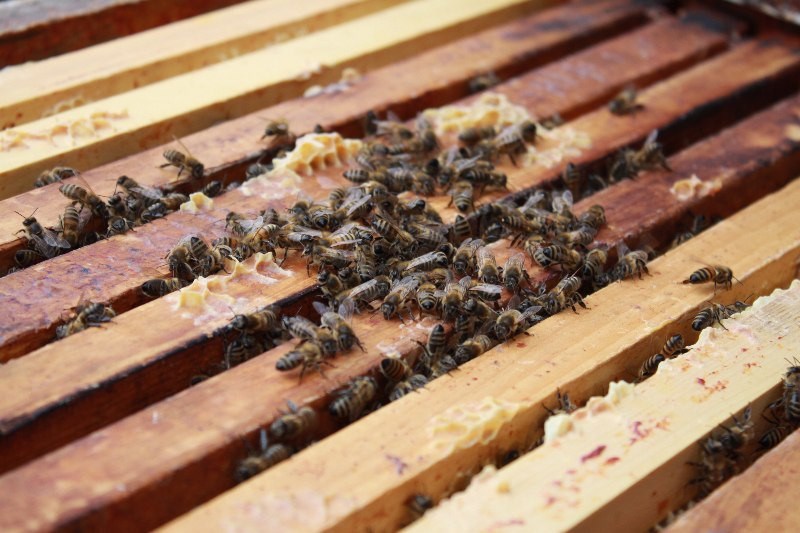The city and region’s bee colonies could be in a bit of a sticky situation.
Beekeepers across the province are calling for the ban of a specific pesticide – neonicotinoid – that’s used on corn and soybeans. It is believed that neonicotinoid poses health risks to honeybees.
The outcry prompted the provincial government to look into the matter.
An expert panel is expected to look at how bees can be protected from exposure to the pesticide.
Thunder Bay Beekeepers Association President Chris Carolan supports the ban.
Although he wasn’t sure if it’s used in the region, he said the health of local colonies is poor. The region has recently been plagued with a parasite that’s destroying bee populations across North America.
The city was once one of the only places in North America that didn’t have the parasitic mite Varroa Destructor, which targets bees and has been destroying the insect’s population worldwide.
With the parasite, the pesticide and diseases like the common cold, Carolan said it’s a wonder there’s any bees at all.
“There’s too much going on that we don’t know about,” he said.
“It doesn’t help matters that all the pesticides are out there and the mites are here. It’s just another nail in the coffin. It’s just another thing that the bees have to contend with to try to survive. The mites are the worse. It’s just been devastating.”
Carolan suspects that local beekeepers have lost 50 to 60 per cent of their colony to the parasite.
For Doug Stanton, co-owner of the Chocolate Cow, his loss was 100 per cent.
Stanton originally started his colony a few years ago as a hobby, which grew into a bit of a side business. He sold his locally produced honey alongside his chocolate at the Thunder Bay Country Market.
But all 12 of his hives collapsed because of the parasite.
“They seemed to be in trouble last fall,” he said. “I had to move the hive so I knew they were a little weak. By November, I was probably down to three and even with feeding them and looking after them through the winter they all died.”
With his colonies gone, Stanton added he’s not too worried as it allows him to focus more on producing chocolate.
